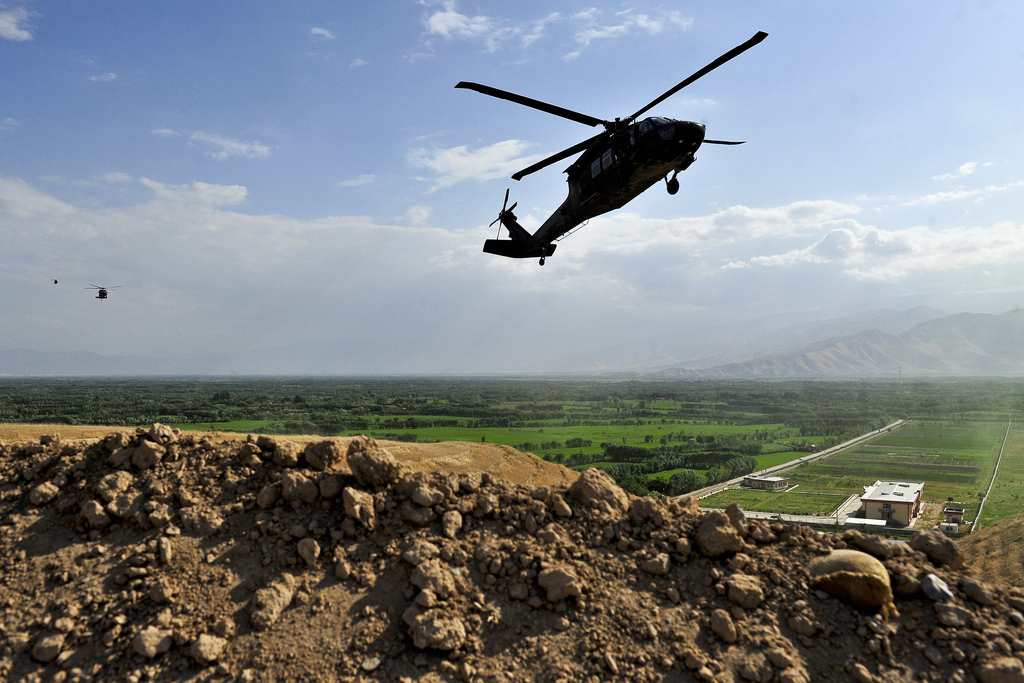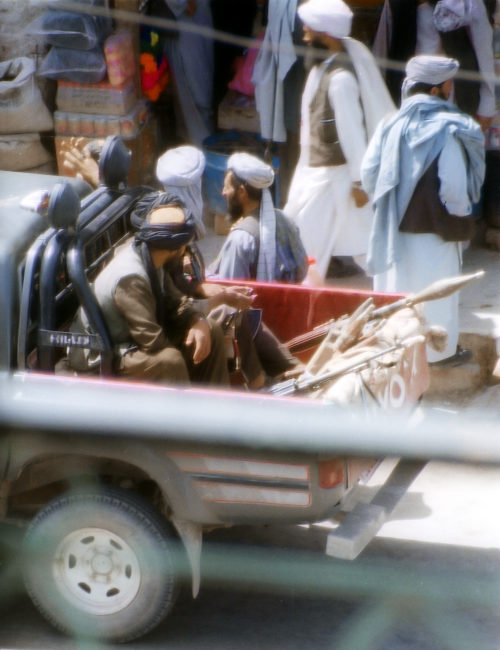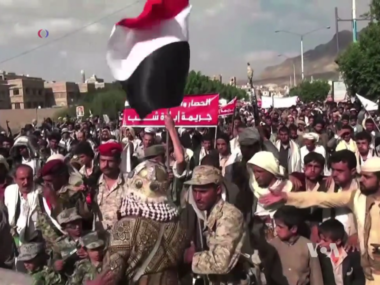Once again, violence in Iraq dominates world headlines. Last week the Sunni Muslim jihadist group alternatively referred to as ISIS or ISIL in the international press overran much of northern Iraq, defeating large numbers of Iraqi troops. Graphic images surfaced this weekend of ISIS fighters executing Iraqi soldiers.
Prime Minister Nuri al-Maliki appears to hope that Shia militias will boost the Baghdad government’s ability to hold back the rebel coalition led by ISIS, but these sectarian militias risk inflaming the communal tensions that ISIS has already exploited. For his part al-Maliki is resisting US calls to reach out to Iraq’s Sunni population and accused Saudi Arabia of promoting “genocide,” all despite influential cleric Ali Sistani’s apparent call for Iraqi unity.
In a Saturday military analysis of the situation, Kenneth M. Pollack — who prefers the broad term “Sunni militants” for the anti-government fighters — concludes that the most likely possibility is that the rebel advance will stall north of Baghdad, rather than that ISIS will take the capital or that government forces will push back and retake the north (via Michael Youhana); Wayne White agrees. On Thursday Shashank Joshi and Aaron Stein judged that ISIS will probably be able to hold its gains and noted the Syrian Assad regime’s long-rumored practice of not targeting the vicious and unpopular jihadi group.
While the militants’ advance has captured global attention, several voices warn against overreacting to the news. Juan Cole corrects seven myths about the advance that have taken root in American circles, and Paul R. Pillar urges everyone to “take a deep breath” and cautions that direct US action targeting the group would only make its terrorist threat worse.
Yesterday the Obama administration announced that it is deploying roughly 275 US troops to Iraq, mainly to protect the US embassy in Baghdad. Beyond this American policy options are murky. Last week Hayes Brown ran down Obama’s choices — realistically ranging from doing nothing to airstrikes and cooperating with Iran — and concluded choosing between them amounts to selecting the “least horrible”. One useful lever could be blocking ISIS funding channels from the Gulf, though the group may be able to now support itself with oil and loot.
Rajan Menon writes that the US can’t do much to unite Iraq, Kevin Lees places blame for the crisis on Iraq’s “ridiculously inefficient, corrupt and increasingly sectarian political elite,” and Tom Ricks wonders why everyone is surprised by what he views as an inevitable consequence of the US invasion.
Going against the conventional wisdom, Shireen T. Hunter attributes the crisis to the minority Iraqi Sunni population’s refusal to accept a subordinate role in the country’s political order and wonders whether al-Maliki could have ever forged a stable sectarian power-sharing agreement (via Douglas Ollivant).
[youtube https://www.youtube.com/watch?v=6kHwxDHg26Y]While President Obama cautioned Friday that without political reconciliation American military options would not be effective — without these political efforts “short-term military action, including any assistance we might provide, won’t succeed” — US airstrikes remain a possibility. However, numerous questions would have to be answered if the US did decide to use its airpower. Would ISIS forces in the cities they occupy be targeted, which would inevitably produce civilian causalities, most likely among the Sunni populations already disposed to begrudge the government? Would the US target ISIS in both Iraq and Syria — which would essentially amount to entering the Syrian war on Assad’s side — or just Iraq? If only ISIS forces in Iraq are targeted the group would retain a comparatively safe haven over the border, but if hitting ISIS in Syria mandated also striking Syrian government targets this would mean an intervention there that Obama administration had avoided for three years, not to mention angering Iran.
Should the US choose airstrikes, the closest recent analog would be the war in Libya, where NATO airpower supported rebel ground forces. It is worth remembering that the Libyan operation eventually included UK attack helicopters operating off ships and special operations forces on the ground. How closely would the US be willing to coordinate with Iraqi Security Forces, Shia militias, and their Iranian IRGC Quds force advisers if it came down to it?
Iran’s role in the crisis has also been frequently discussed. Tehran surely sees the prospect of chaos on their western border as a grave threat, but opinions also diverge: judging from headlines Iran either “wins again” from the crisis or is its “biggest loser” (first link via Arash Karami). Citing the crisis the UK is set to reopen its embassy in Tehran (full diplomatic relations were suspended in 2011), and Trita Parsi discusses the possibility of US-Iranian coordination (though military cooperation has reportedly been ruled out).
The renewed attention on post-2003 Iraq’s sectarian divides and the Syrian war’s overflow has also strengthened the argument that Iraq and the region’s borders — which were famously set by Europeans after the first World War — are unravelling. “More and more and more people are coming to realize that the system as it is organized, as it is structured, is imploding,” the London School of Economics’ Fawaz Gerges says. However, the road to internationally-recognized de jure border changes is a difficult one, and James Devine writes that “that there is no straight line between ISIS’ capture of Mosul and the collapse of the Iraqi state.” Chase Winter also cautions that a formal independence declaration from Iraqi Kurdistan, the region’s strongest quasi-state, is not likely.







2 comments